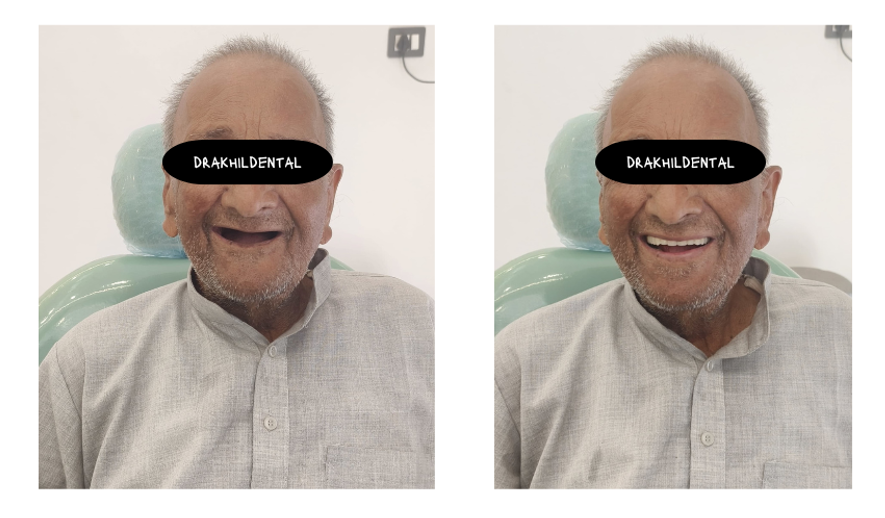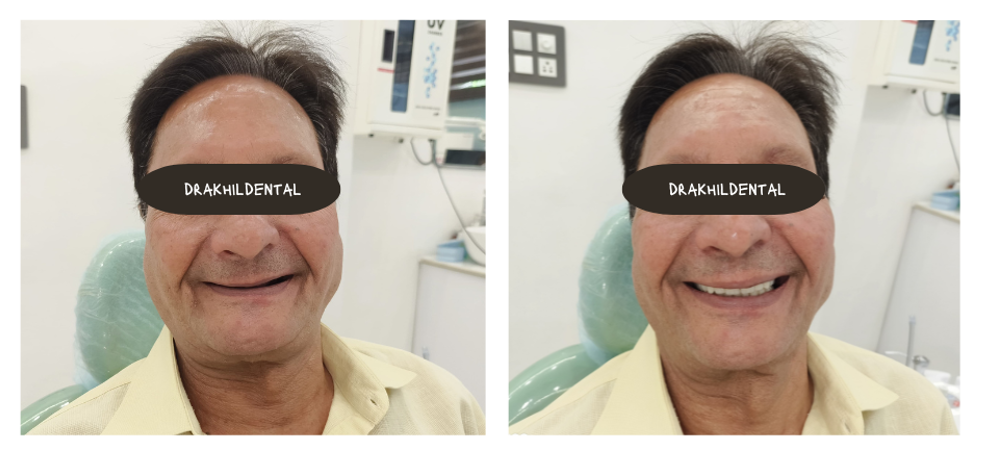Everything You Need to Know About Dentures: A Patient’s Guide
What Are Dentures?
- Complete Dentures

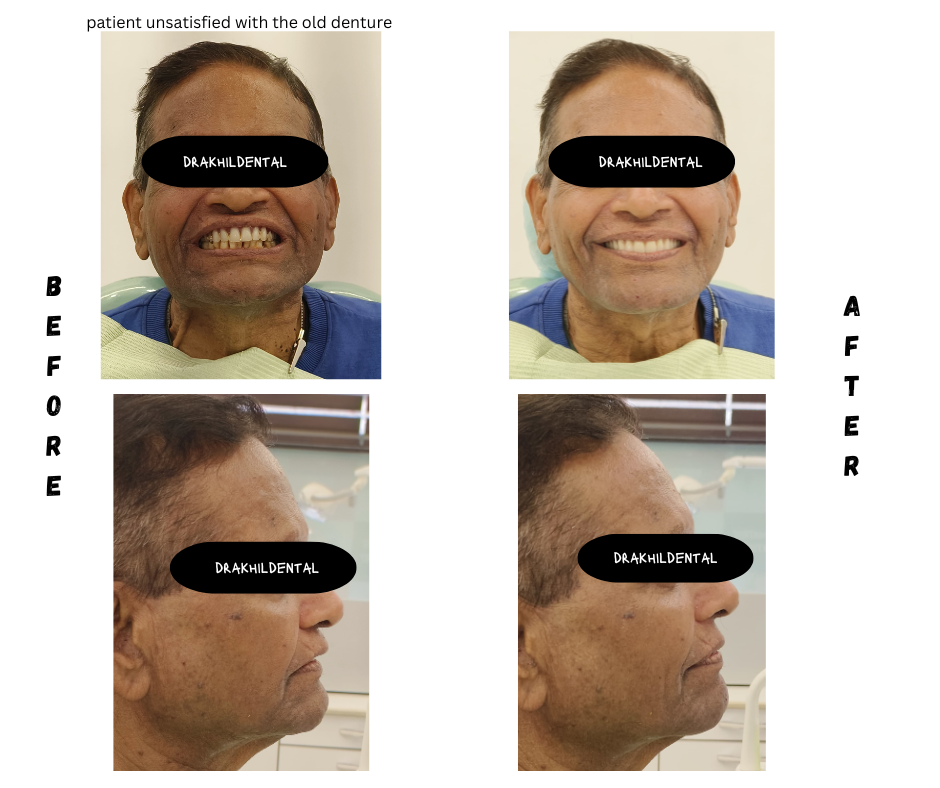
Benefits of Complete Dentures
 Aesthetics
Aesthetics
Complete dentures restore facial contours and improve the smile, giving patients renewed confidence.
 Cost-Effective
Cost-Effective
Compared to other restorative options, complete dentures can be a more affordable solution for tooth loss.
 Non-Invasive Solution
Non-Invasive Solution
For patients who may have health concerns or are not candidates for surgery, complete dentures offer a non-invasive alternative. The process typically involves less discomfort and a shorter treatment time compared to implant procedures
 More hygienic
More hygienic
As the dentures are removable, hygiene can be maintained easily as compared to the fixed prosthesis.

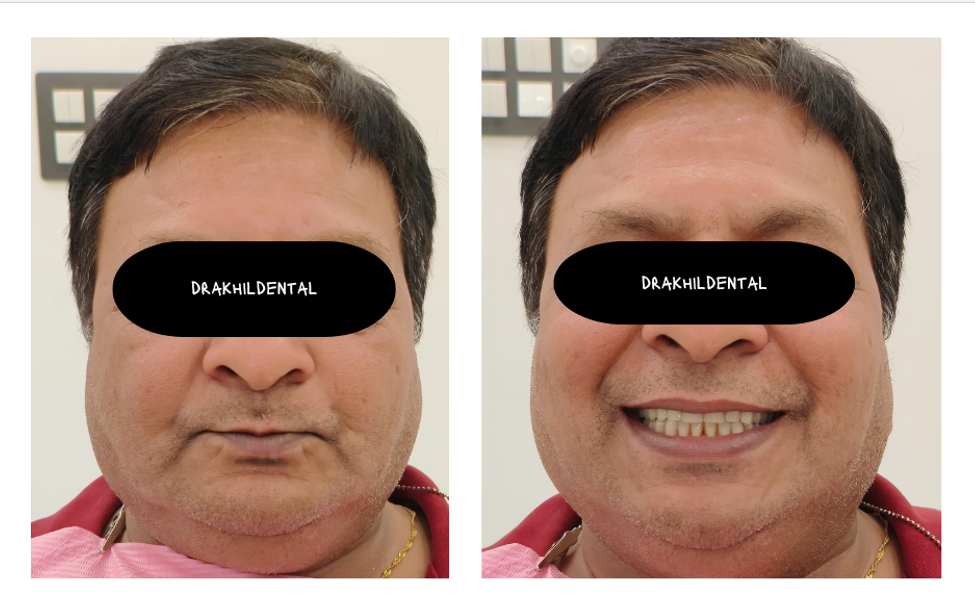
Types of Complete Dentures?
1. Conventional Dentures: These are created after the gums have healed from tooth extraction, typically a few months later. They provide a stable and custom fit.
2. Immediate Dentures: Placed immediately after teeth are extracted, these dentures help patients maintain their appearance during the healing process. However, adjustments may be needed as the gums heal and change shape. After the completion of healing, the immediate denture must be finalized by a permanent reline or a new denture.
3. Implant-Supported Dentures: These are anchored to dental implants for enhanced stability. They prevent slippage and can provide a more natural feel, making them a popular choice for many patients.
- Partial Dentures
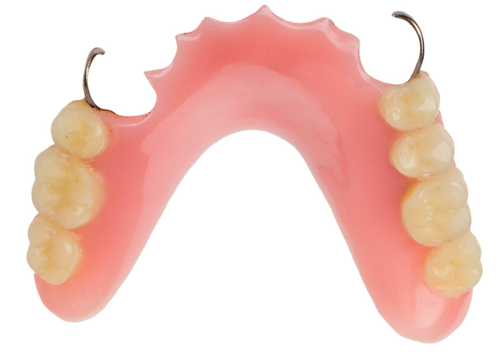
Partial dentures are ideal for individuals who have lost some but not all of their teeth. They consist of replacement teeth attached to a gum-colored base, often secured with metal clasps to existing teeth.
- Types of Partial Dentures
1. Conventional Removable Partial Dentures (RPDs): These are traditional dentures that can be easily removed. They are a great option for patients with several missing teeth.
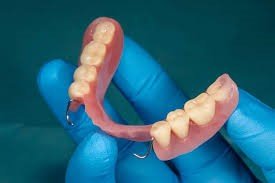
2. Cast Partial Dentures: Made from a metal framework, cast partial dentures are durable and provide a more precise fit. They are often more comfortable and less bulky than conventional RPDs.
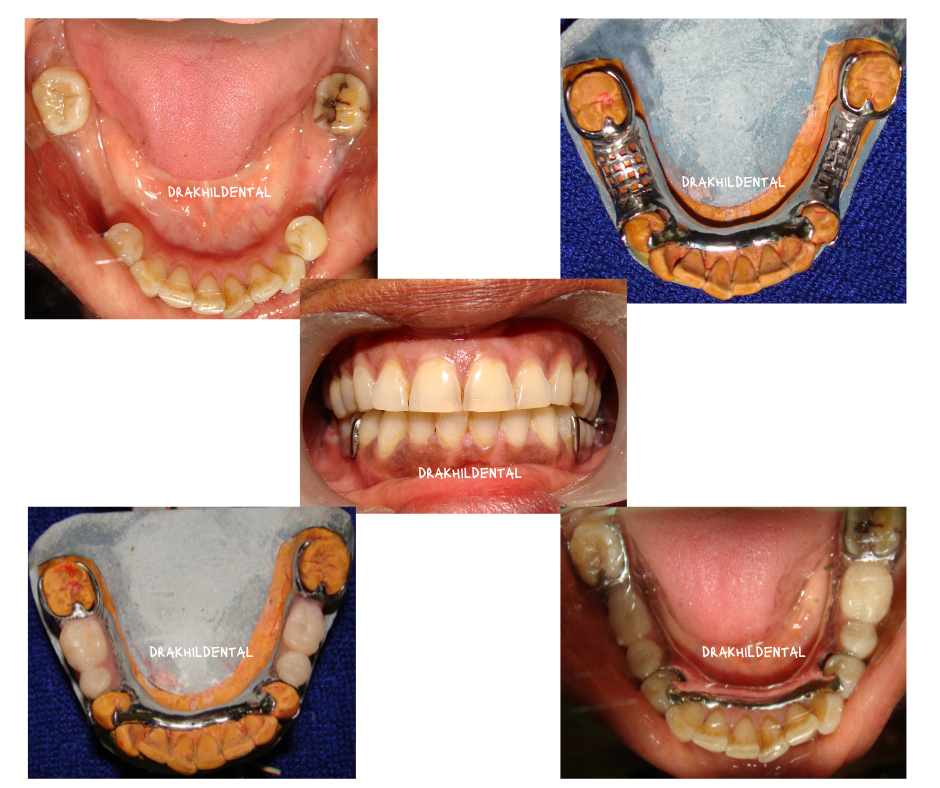
3. Flexible Partial Dentures: Made from a flexible material, these dentures are lightweight and adaptable. They offer comfort and aesthetics, as they blend seamlessly with natural gums.

Frequently Asked Questions (FAQs) About Dentures
How long does it take to get used to wearing dentures?
Most patients adjust within a few weeks, but it varies based on individual comfort and previous experience with dental appliances.
Are dentures uncomfortable?
Initially, some discomfort is normal as your mouth adjusts. However, well-fitted dentures should not cause pain. If you experience discomfort, consult your dentist.
How do I care for my dentures?
Brush your dentures daily with a soft brush and mild soap. Soak them overnight in water to keep them moist and prevent warping.
Will dentures affect my speech?
Some patients may experience temporary changes in speech, but most adapt quickly. Practice speaking aloud to help with adjustment.
Can I sleep with my dentures in?
It's generally recommended to remove dentures at night to allow your gums to rest and prevent irritation.
How often should I visit the dentist with dentures?
Regular check-ups (at least once a year) are essential to ensure a proper fit and address any issues.
Conclusion?
